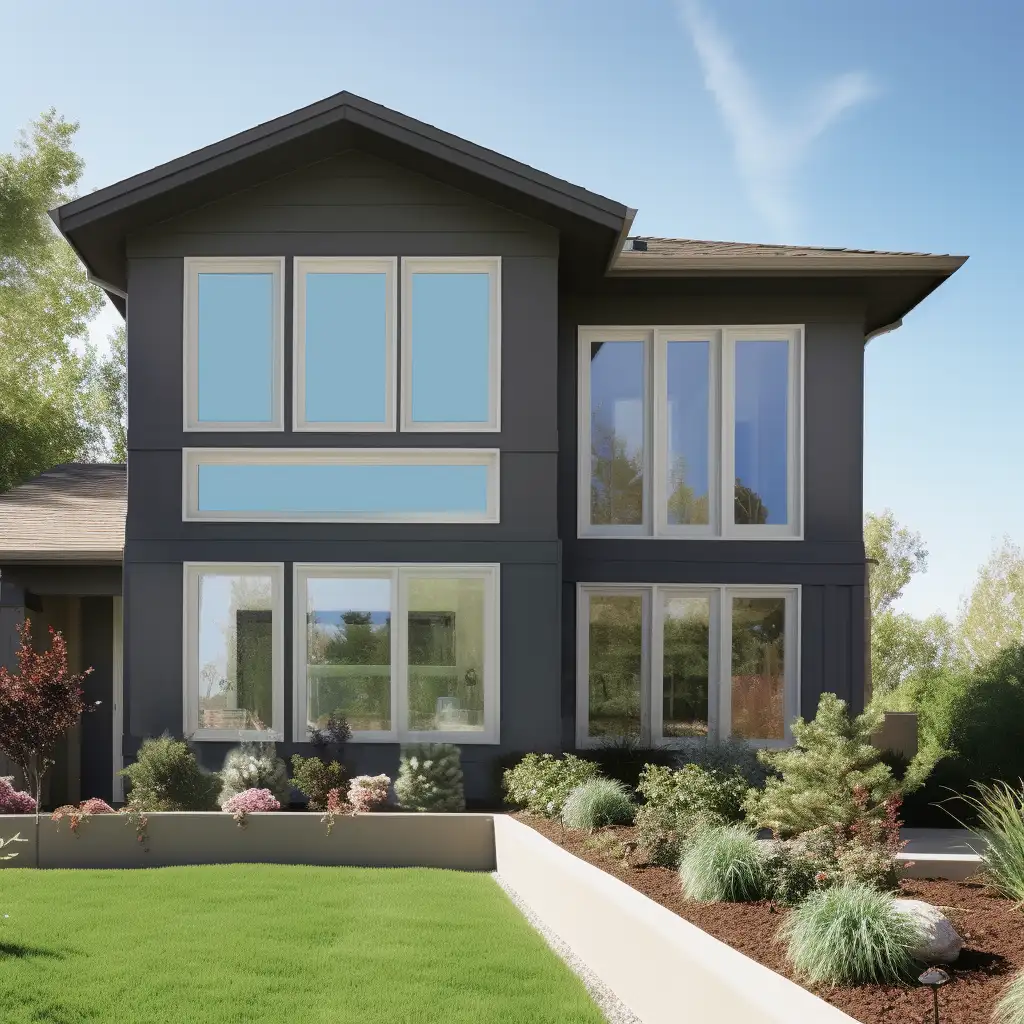Exactly How Residential Home Window Tinting Enhances Your Home's Power Efficiency
Residential window tinting provides an engaging remedy for property owners looking for to enhance energy effectiveness within their living areas. By using specialized films to windows, it successfully lowers heat transfer, thus supporting interior temperature levels and minimizing the need for extreme heating or air conditioning.
Understanding Window Tinting
Recognizing window tinting is essential for property owners seeking to improve both comfort and power performance in their living spaces. Residential Window Tint. Window tinting involves the application of a thin film to the interior or exterior surface area of glass home windows. This film can substantially regulate the quantity of sunshine and warmth that gets in a home, hence affecting indoor climate conditions
There are different sorts of window tinting films available, each with distinctive residential properties. Dyed films absorb solar energy, while reflective movies disperse it away from the glass surface. Ceramic films supply an equilibrium of presence and warm being rejected, making them a popular choice amongst home owners. The performance of window tinting is frequently measured by its Visible Light Transmission (VLT) percent, which shows just how much light can pass with the film.
Advantages of Energy Performance
Window tinting not just improves looks however additionally plays a considerable role in boosting energy performance within property spaces. By lowering heat transfer with windows, colored movies create an extra secure interior climate, which can bring about significant reductions in energy consumption for heating & cooling. This energy performance converts right into reduced utility costs, offering property owners with substantial long-lasting savings.

Furthermore, window tinting enhances the comfort of living rooms. By decreasing glow and obstructing dangerous UV rays, tinted windows develop an even more enjoyable environment, which can cause enhanced well-being for occupants. The security versus UV rays also assists protect furniture and floor covering from fading, contributing to the durability of family products.
Just How Tinting Works
Tinting movies operate through a mix of advanced materials and modern technologies designed to control the amount of solar power going into a home. Mostly composed of polyester, these films commonly incorporate metallic or ceramic particles that show and soak up heat. This twin capability permits them to significantly minimize the penetration of ultraviolet (UV) rays and infrared radiation while allowing noticeable light to go through.
The performance of home window tinting is determined by its solar warmth gain coefficient (SHGC), which suggests exactly how much solar energy is transferred through the home window. Reduced SHGC worths are better as they signify higher warm rejection. Additionally, window colors can feature a range of shades, enabling property owners to tailor their visual visit their website preferences while enhancing energy performance.
Furthermore, these movies serve as an obstacle, preventing warmth loss during colder months by reflecting interior warmth back right into the space. This thermal insulation effect matches the cooling advantages gained during warmer months, contributing to a well balanced interior climate year-round. By handling solar power effectively, household window tinting not just boosts comfort but likewise plays a crucial duty in decreasing power usage and lowering energy bills.
Choosing the Right Tint

There are various kinds of home window movies readily available, including dyed, metalized, and ceramic. Ceramic films provide superb heat control without jeopardizing presence and are highly long lasting, making them a preferred option.
Visible light transmission (VLT) is an additional important element, as it indicates the amount of all-natural light that can pass through the tinted glass. House owners ought to select a color with a VLT that complements their lighting choices while still offering appropriate glare click over here now decrease.
Furthermore, assessing the solar warmth gain coefficient (SHGC) can assist determine how well a color can block warmth from sunshine. A reduced SHGC shows much better warm control, ultimately improving power effectiveness.
Installment and Maintenance Tips
Appropriate installation and maintenance are crucial parts in optimizing the advantages of domestic window tinting. To attain ideal outcomes, it is advisable to work with a certified specialist for installment. This guarantees that the color is applied properly, preventing air bubbles, creases, or misalignment that can jeopardize performance. Experts likewise utilize specialized methods and tools, which can boost the durability and efficiency of the tint.
Adhering to installation, maintenance is important to prolong the life of the window film. It is recommended to wait a minimum of 1 month prior to cleaning up the tinted windows to allow the glue to cure completely. When cleansing, make use of a soft fabric and a mild, ammonia-free cleaner to click for more info avoid harming the movie. Stay clear of abrasive materials that might scratch the surface.
Dealing with these concerns without delay can stop additional damage and preserve power performance. By adhering to these installment and upkeep suggestions, property owners can guarantee their home window tinting continues to provide substantial energy savings and comfort for years to come.
Conclusion
In final thought, domestic home window tinting offers as an effective service for boosting energy performance within homes. By minimizing warm transfer and obstructing damaging UV rays, home window movies add to lower power intake and improved interior convenience.
Home window tinting includes the application of a thin film to the interior or exterior surface area of glass windows. By decreasing heat transfer with windows, tinted films develop an extra secure interior climate, which can lead to substantial reductions in power usage for heating and cooling.The effectiveness of home window tinting is gauged by its solar heat gain coefficient (SHGC), which suggests how much solar power is sent via the window. By handling solar energy effectively, property window tinting not only enhances convenience yet additionally plays an essential duty in minimizing energy consumption and reducing utility bills.
By decreasing warmth transfer and blocking damaging UV rays, home window films contribute to reduce energy usage and enhanced interior convenience.